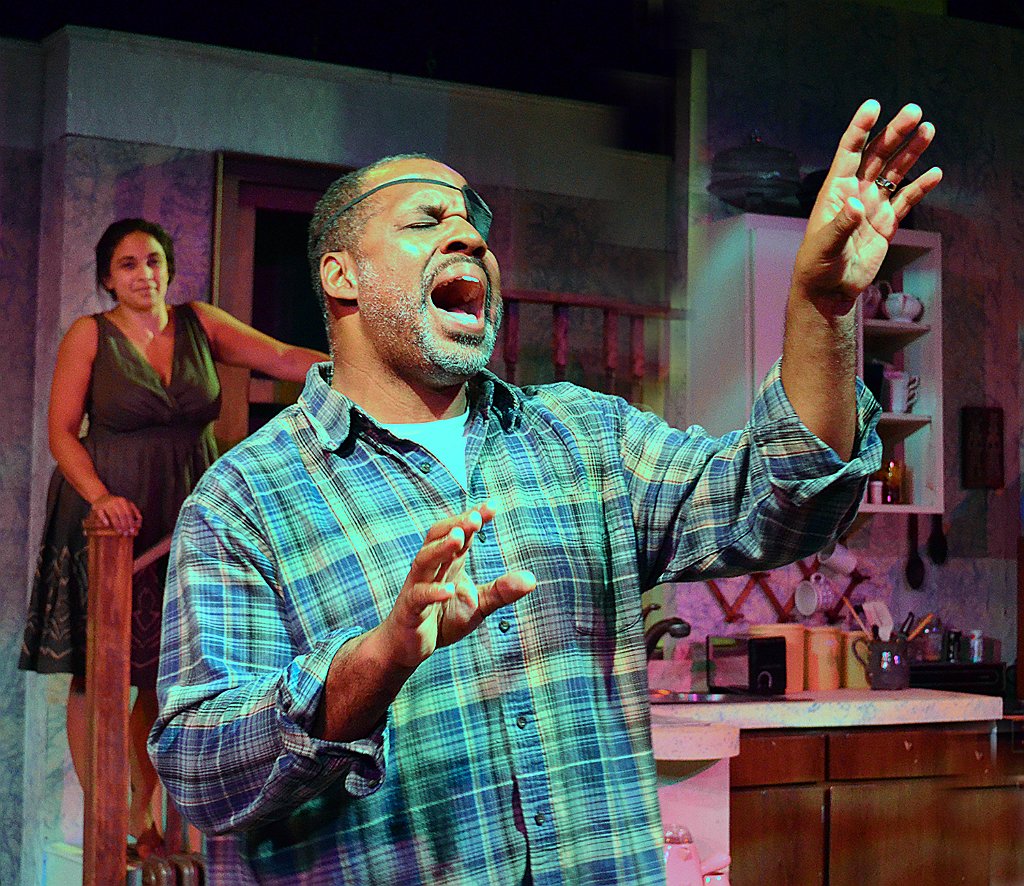Broke-ology
Seattle Public Theater at the Bathhouse, 7312 W. Green Lake Ave. N., 524-1300, seattlepublictheater.org. $10–$30. 7:30 p.m. Thurs.–Sat., 2 p.m. Sun. Ends Oct. 20.
An ill, aging parent determined to stay in the old family home. Two grown sons pulled in opposite directions—one to stay close (with a pregnant girlfriend), the other hoping to stay away. The King household happens to be black in Nathan Louis Jackson’s ghost-haunted 2008 family drama, set in Kansas City, Kansas, though the pressures felt inside are universal.
In a short prelude on Craig Wollam’s homey set, pregnant Sonia (Amber Wolfe Wollam) hopes for a better future and a house with no bars on the widows. The lights dim to purple and Motown music swells until widowed William (Troy Allen Johnson) wakes some 30 years later. Same bars, same windows, same house. Nothing has changed, except that William has multiple sclerosis and a bad eye as he hobbles stiffly about the place.
And what of Sonia’s old hopes? Her sons bound in, full of enthusiasm that will wane over two acts. Jovial firstborn Ennis (Corey Spruill) is trapped in a restaurant job, pressured by his baby mama to work extra shifts. He’s quite aware, even resentful, that his carefree days are about to end. Studious Malcolm (Tyler Trerise), meanwhile, has the prospect of a career in KC, but he’d rather be back in Connecticut, where he got his master’s degree. So who’s going to take care of William during the coming decline? He’s forgetting his meds and starting kitchen fires. “I want to go,” says Malcolm. “We need you here,” Ennis insists.
The conflicts and characters here aren’t terribly fresh, though director Valerie Curtis-Newton and her likable cast do their best with the hand they’re dealt. Written at Juilliard, Broke-ology feels very much like a first-time effort, which it is. The pacing is slack, and Jackson doesn’t bring much outside pressure into the Kings’ home. Ennis gets a few cell-phone calls from his irate girlfriend—which, incredibly, he takes outside. (Note to aspiring playwrights: The audience wants to hear those calls.) William and Sonia are pretty much saints, working-class folk who raised their boys right. And if Ennis and Malcolm can’t be mad at their parents, could they at least attack the system that both has them feeling so stuck?
No, Jackson doesn’t bother with context, even when Sonia’s ghost makes us think of the big economic picture. “This is not the life I dreamed I’d be living,” she says. “This is not where I thought I’d end up.” Looking at the past three decades, most Americans would agree with her, which gives the play an almost accidental topicality.
bmiller@seattleweekly.com








